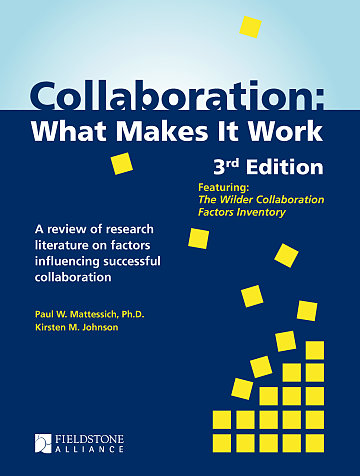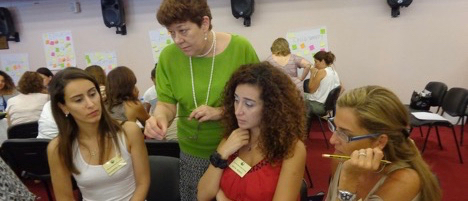
One of the better and more practical resources on community collaboration that I have utilized over the years is a little monograph published by the Wilder Foundation titled Collaboration: What Makes it Work (authors Paul W. Mattessich and Kirsten M. Johnson). I’ve long appreciated the practical advice, drawn from the research literature and from observed practice, and how well the authors conveyed that information concisely, in a 75 page handbook. So I was very pleased to see a new, third edition of the handbook was published last year, and I am happy to report that the new edition is even better. Here I highlight some of its key contributions, while offering my strong endorsement and recommendation for anyone doing boundary-crossing work to get your own copy of this resource.
Like the previous edition, the new third edition is focused on collaboration as “a mutually beneficial and well-defined relationship entered into by two or more organization to achieve common goals.” The book is organized around 22 collaboration success factors, grouped within six categories of Continue Reading

